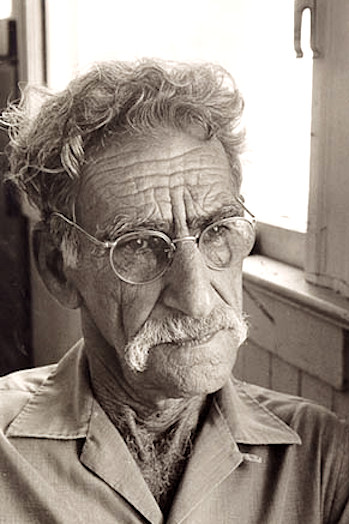
"Obsessed, bewildered / By the shipwreck / Of the singular / We have chosen the meaning / Of being numerous."
I was 23 and self-effacing, my hair in a tight bun, when I read these lines, out of George Oppen's Of Being Numerous. I read them on my hour or so ride on the Q train, when I went to teach Brighton Beach community college students who had failed their basic reading and writing exam. That season, in which one of my students left obscene phrases on torn pieces of paper on my desk, I tried to teach poetry to him and the others and sometimes succeeded.
As for how I lived, I was, as Oppen wrote, one of the youngest people living in "the oldest buildings/ Scattered about the city / In the dark rooms / Of the past–and the immigrants, / The black / Rectangular buildings / Of the immigrants. / They are the children of the middle class."
The book Of Being Numerous was published in 1968, and yet there was so much about it that was still true in 1995. I was very young and like a character in Oppen's poem, I lived in a set of different nineteenth century walk-ups in the East Village. One had a hole in the floorboards; cigarette smoke emanated through it from the loud downstairs bar.
For the next two decades after reading "Of Being Numerous," I would hew to the poem's concerns and even personally, though unconsciously, emulate Oppen's path (more on that in a moment). I didn't know in 1995, that from the second I read the book it would influence my life.
Why is this poem so affecting? For starters, "Of Being Numerous," whose forty serial parts are all widely varied in length and subject, is a public poem about cities and ordinary people and their histories. It is more active than purely activist. It is an exemplar of "civic poetry," the movement I've been rabbiting on about lately. As civic poetry, "Of Being Numerous" is not precious or otherworldly but about the stuff of life: money, gender, corporate excess, and injustice. And today, civic poetry is on the rise with the work of poets and publishers like Claudia Rankine, Commune Editions, Anne Boyer, The Offing, et cetera. I try to write this sort of poetry myself.
Then there was the effect of Oppen's biography. His life story produced, for me, a wave of narcissistic relief. He was the prodigy in reverse, the un-Keats. He was roughly 60 years old when Of Being Numerous was published. His brilliance came late, as a result, perhaps, of underproduction and delay. The poet famously gave himself over to his activist work—although in some accounts it was more like marriage and child-rearing, which I suppose could be considered just as radical at the time. He left poetry behind for roughly 25 years. He has said of his silence that he "didn't believe in political poetry or poetry as being politically efficacious."

No comments:
Post a Comment